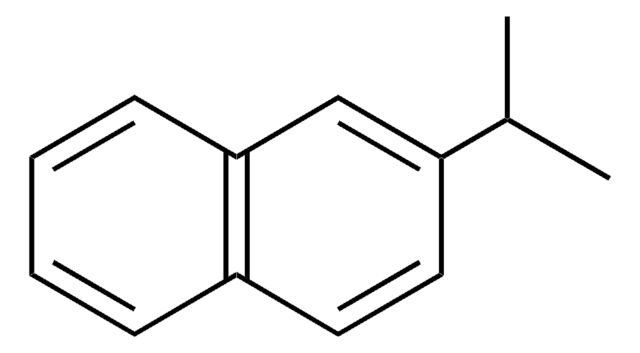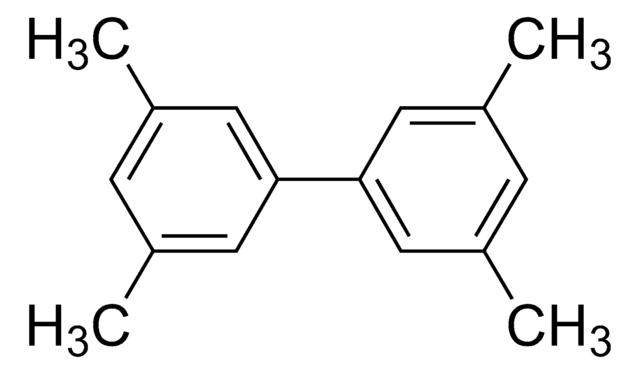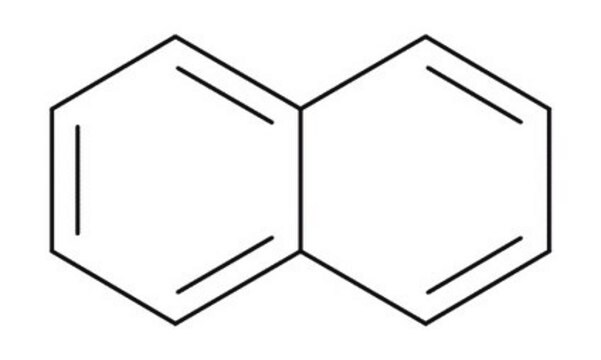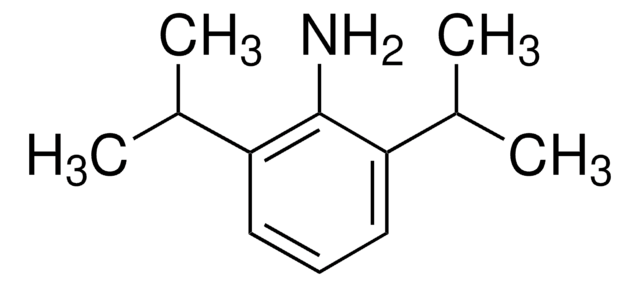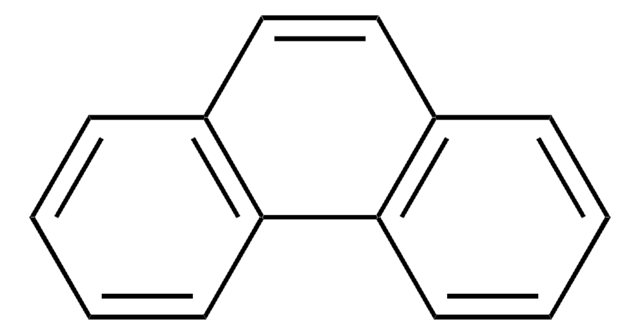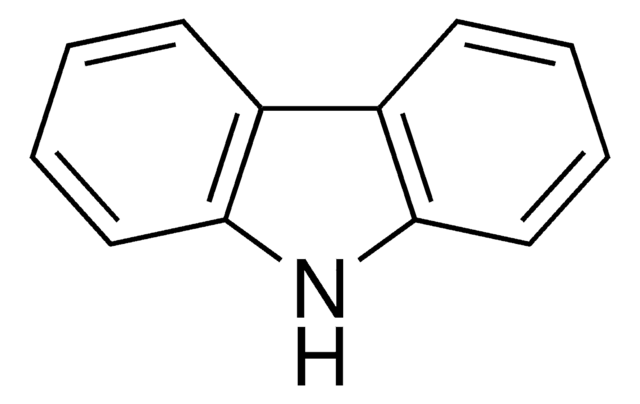Alle Fotos(1)
Wichtige Dokumente
CDS003812
2,6-Diisopropylnaphthalene
AldrichCPR
Anmeldenzur Ansicht organisationsspezifischer und vertraglich vereinbarter Preise
Alle Fotos(1)
About This Item
Empirische Formel (Hill-System):
C16H20
CAS-Nummer:
Molekulargewicht:
212.33
EG-Nummer:
MDL-Nummer:
UNSPSC-Code:
12352200
PubChem Substanz-ID:
Empfohlene Produkte
Form
solid
SMILES String
CC(C)c1ccc2cc(ccc2c1)C(C)C
InChI
1S/C16H20/c1-11(2)13-5-7-16-10-14(12(3)4)6-8-15(16)9-13/h5-12H,1-4H3
InChIKey
GWLLTEXUIOFAFE-UHFFFAOYSA-N
Sonstige Hinweise
Please note that Sigma-Aldrich provides this product to early discovery researchers as part of a collection of unique chemicals. Sigma-Aldrich does not collect analytical data for this product. Buyer assumes responsibility to confirm product identity and/or purity. All sales are final.
NOTWITHSTANDING ANY CONTRARY PROVISION CONTAINED IN SIGMA-ALDRICH′S STANDARD TERMS AND CONDITIONS OF SALE OR AN AGREEMENT BETWEEN SIGMA-ALDRICH AND BUYER, SIGMA-ALDRICH SELLS THIS PRODUCT "AS-IS" AND MAKES NO REPRESENTATION OR WARRANTY WHATSOEVER WITH RESPECT TO THIS PRODUCT, INCLUDING ANY (A) WARRANTY OF MERCHANTABILITY; (B) WARRANTY OF FITNESS FOR A PARTICULAR PURPOSE; OR (C) WARRANTY AGAINST INFRINGEMENT OF INTELLECTUAL PROPERTY RIGHTS OF A THIRD PARTY; WHETHER ARISING BY LAW, COURSE OF DEALING, COURSE OF PERFORMANCE, USAGE OF TRADE OR OTHERWISE.
NOTWITHSTANDING ANY CONTRARY PROVISION CONTAINED IN SIGMA-ALDRICH′S STANDARD TERMS AND CONDITIONS OF SALE OR AN AGREEMENT BETWEEN SIGMA-ALDRICH AND BUYER, SIGMA-ALDRICH SELLS THIS PRODUCT "AS-IS" AND MAKES NO REPRESENTATION OR WARRANTY WHATSOEVER WITH RESPECT TO THIS PRODUCT, INCLUDING ANY (A) WARRANTY OF MERCHANTABILITY; (B) WARRANTY OF FITNESS FOR A PARTICULAR PURPOSE; OR (C) WARRANTY AGAINST INFRINGEMENT OF INTELLECTUAL PROPERTY RIGHTS OF A THIRD PARTY; WHETHER ARISING BY LAW, COURSE OF DEALING, COURSE OF PERFORMANCE, USAGE OF TRADE OR OTHERWISE.
Signalwort
Warning
H-Sätze
Gefahreneinstufungen
Acute Tox. 4 Oral - Aquatic Acute 1 - Aquatic Chronic 1
Lagerklassenschlüssel
11 - Combustible Solids
WGK
WGK 3
Flammpunkt (°F)
284.0 °F - closed cup
Flammpunkt (°C)
140.00 °C - closed cup
Hier finden Sie alle aktuellen Versionen:
Analysenzertifikate (COA)
Lot/Batch Number
Leider sind derzeit keine COAs für dieses Produkt online verfügbar.
Wenn Sie Hilfe benötigen, wenden Sie sich bitte an Kundensupport
Besitzen Sie dieses Produkt bereits?
In der Dokumentenbibliothek finden Sie die Dokumentation zu den Produkten, die Sie kürzlich erworben haben.
Kunden haben sich ebenfalls angesehen
Eelco N Pieke et al.
Analytica chimica acta, 975, 30-41 (2017-05-30)
Risk assessment of exposure to chemicals from food and other sources rely on quantitative information of the occurrence of these chemicals. As screening analysis is increasingly used, a strategy to semi-quantify unknown or untargeted analytes is required. A proof of
K Van Den Houwe et al.
Food additives & contaminants. Part A, Chemistry, analysis, control, exposure & risk assessment, 34(7), 1261-1269 (2017-05-18)
Contaminants in food packaging are a challenge of our time since the packaging material itself has been found to represent a source of food contamination through the migration of substances from it. Before first use, packaging materials destined for the
Coraline Simon et al.
Toxicology in vitro : an international journal published in association with BIBRA, 37, 121-133 (2016-10-19)
Endocrine activity of 65 compounds migrating from polycarbonate replacement plastic baby bottles was assessed using in vitro cell based assays (reporter gene assays) involving 7 nuclear receptors, i.e. human steroid hormones receptors (oestrogen, androgen, progesterone and glucocorticoid receptors), human thyroid
Matthias Onghena et al.
Food additives & contaminants. Part A, Chemistry, analysis, control, exposure & risk assessment, 31(12), 2090-2102 (2014-11-20)
In 2011, the European Union prohibited the production of polycarbonate (PC) baby bottles due to the toxic effects of the PC monomer bisphenol-A. Therefore, baby bottles made of alternative materials, e.g. polypropylene (PP) or polyethersulphone (PES), are currently marketed. The
Unser Team von Wissenschaftlern verfügt über Erfahrung in allen Forschungsbereichen einschließlich Life Science, Materialwissenschaften, chemischer Synthese, Chromatographie, Analytik und vielen mehr..
Setzen Sie sich mit dem technischen Dienst in Verbindung.

